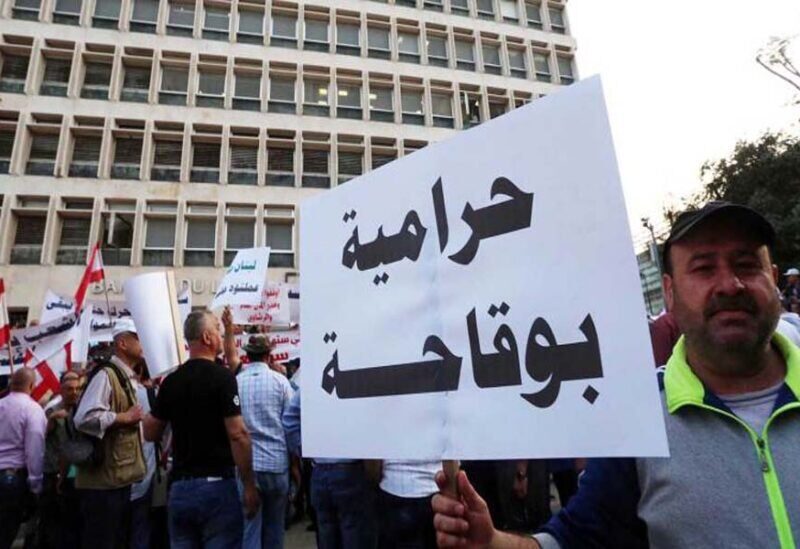
Protests erupt at BDL
The Lebanese government is deceiving the Parliament. In its turn, the Parliament deceives the people. It’s election season, and elections never run without a glimpse of lies.
The government submits the “Capital Control” proposal to the Parliament, then the Parliament refuses to use small depositors’ money, the rope is mixed, and the House of Representatives and the government agree on one lie: “It is illegal to mess with small depositors’ funds.”
The following remarks should be made in response to this populist slogan:
What is the government’s and Parliament’s reaction to His Excellency Al-Shami, the Deputy Prime Minister who is negotiating with the International Monetary Fund, publicly declaring in a televised appearance that the Banque du Liban is insolvent and the state is bankrupt?
If the parliament and government are interested in small depositors’ funds, why don’t they exert pressure on banks to give small depositors their money?
Why hasn’t anybody mentioned the “big depositors” who have withdrawn their money and continue to do so after October 17, 2019, and some of them are still sending their money outside in the absence of “Capital Control”?
The government and parliament, when they convene, lack the confidence to announce that “the depositors’ funds have vanished,” and this lack of bravery originates from their fear of the depositors, who are votes during election season, so who would dare to say to the voters, “Your deposits have been spent”? Particularly given the majority of people involved in the “Capital Control” effort, including MPs and ministers, are candidates.
Following the Israeli incursion in June 1967, the Lebanese Parliament gathered and approved the “Capital Control” bill in less than a week to resurrect the memory of the legal and administrative authority in Lebanon. Today, two and a half years have passed since October 17, 2019, and successive governments and the Parliament have failed to ratify what should have been adopted in a week.
We are all aware of how the monies vanished: Depositors placed their money in banks, which deposited it in the central bank, which loaned it to the state, which spent it on perishable projects with no returns, such as fuel and a series of ranks, salaries, and utilitarian projects…
When the money flew, start thinking about how to reward depositors, not how to “control” the “capital.” What capital is the state exactly seeking to control?